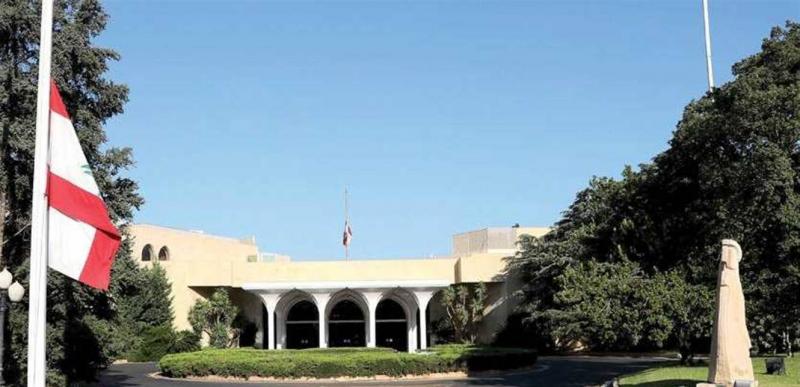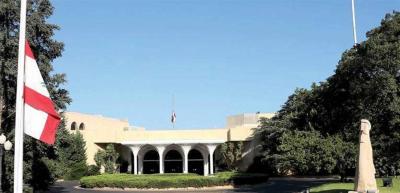Countries concerned with Lebanon, either directly or indirectly, remain in a wait-and-see phase regarding the presidential elections. These countries, especially five of them—America, France, Saudi Arabia, Egypt, and Qatar—approach the situation according to their interests. Conversely, other nations with allies in Lebanon, such as Iran and Syria, consider the Lebanese situation in a way that does not betray the resistance and aims to preserve the deterrence established against the Israeli enemy. Their weaponry played a role in liberating Lebanese land from Israeli occupation on May 25, 2000, resisting the Zionist aggression in the summer of 2006, and preventing the expansion of terrorist groups into Lebanon, expelling them from Arsal and other areas.
These perspectives impose themselves on the presidential obligation, as there are specifications set for the candidates by both Lebanese parties and external regional and international entities. This has delayed the election of a president, for which there is an urgent hope to conduct in order to regulate the work of constitutional institutions and move forward with reforms by a government committed to a recovery plan and adhering to the demands or conditions of the International Monetary Fund. The demand for “Lebanonizing” the presidential obligation is sought by the “parliamentary blocs,” and some are working to turn it into a Lebanese endeavor, as announced by Hezbollah Secretary General Hassan Nasrallah. Even his political adversaries agree, yet there has been no consensus on the political mechanism to legislatively translate it in the Parliament. The Parliament has held 11 sessions without electing a president, remaining stuck in the first round of each session, failing to secure the quorum as deputies leave the hall. Thus, Speaker Nabih Berri has postponed calling for the 12th session indefinitely until a consensus on a candidate’s name is reached after internal dialogues. He remains steadfast in this position despite naming “Marda Movement” leader Sleiman Frangieh as a candidate for the presidency, supported by Hezbollah.
The competition lies between the announced candidates: Frangieh, designated by the duo “Amal” and Hezbollah and its allies, and MP Michel Mouawad, who is supported by the “Kataeb” and “Lebanese Forces” parties along with other deputies. This comes after the “Democratic Gathering,” led by Taymour Jumblatt, shifted toward a third candidate, described as moderate. Names mentioned include Jihad Azour, Salah Hnein, and Army Commander General Joseph Aoun. Legislative sources believe the scattering of votes cannot guarantee victory for any candidate, neither with a two-thirds majority in the 86-member Parliament nor with a simple majority in the second round while ensuring a legal quorum.
Therefore, the presidency is postponed to a not-so-distant date, as the candidates, especially the serious ones, have not yet passed the stage of gaining enough votes to secure their election based on the conviction of parliamentary blocs in this candidate or that. There is a deep political rift among the Lebanese political forces, with one faction openly advocating for the disarmament of Hezbollah and the end of its "statelet" in favor of a state that possesses the decision of war and peace, advocating for Lebanon's return to "Arabism" and extracting it from the "Iranian axis." Meanwhile, Hezbollah and its allies oppose this proposal, considering it aimed at dismantling the resistance and disarming it, as well as exposing Lebanon to the Zionist enemy, wasting years of confrontation, fighting, and the sacrifices of martyrs and the wounded, merely to grant the Zionist entity security, which is shaky from within and may collapse in the near future. Sources in the resistance line state that there will be no concessions on principles; military victory cannot turn into political defeat, a matter of no retreat from.
Faced with each party entrenched in its conditions, obtaining a settlement to bring them closer has not yet come to fruition. The head of the "Progressive Socialist Party" is striving for that and has proposed candidates, but they have not attracted a consensus from the "Shiite duo" first, or from Christian parties. Even the list of candidates proposed by Bkirki, brought forward by the Maronite Patriarch’s envoy, Bishop Antoine Bou Najm, has not received acceptance from some Christian political forces with which it was marketed. The Maronite Patriarch is attempting to leverage the "spiritual retreat" he called for on April 5 at Bethany in Harissa to emerge with consensus on a candidate. However, it does not seem that the "Christian deputies" invited will respond positively, and no agreement is expected, especially since deputies from Christian sects have announced their non-attendance. Visitors to the patriarchal seat report that the patriarch hopes that through this invitation, deputies will heed God’s call as they pray before Him to have mercy on their homeland and relieve the Lebanese people from their suffering related to hunger, poverty, lack of medical treatment in hospitals, and obtaining medicine, and so on.
The presidency is dependent on a moral awakening from the deputies, which is what Patriarch Raï hopes for, to embody it. Otherwise, "to whom do you read your Psalms, O David?"




